Gabon: What is a coup?
- Published

The army has taken control in the African country of Gabon.
It follows a series of similar events in Mali, Burkina Faso, Niger and Chad in recent years.
Many people are calling this takeover a coup - but what does it mean?
What is a coup?
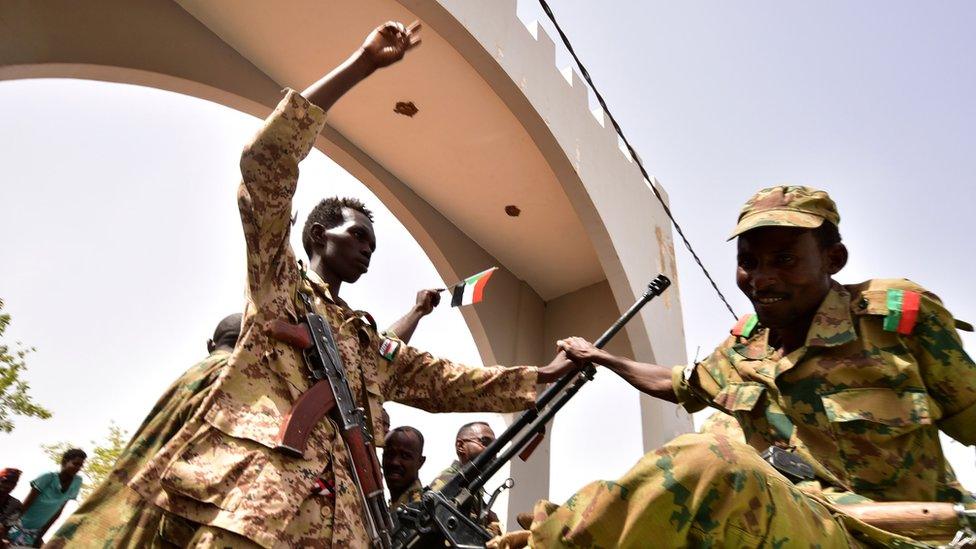
Soldiers in Sudan celebrate a coup in 2021 - the prime minister and his cabinet were arrested and the government dissolved
Coup is a French word that means a blow or strike in French.
English speakers often borrow the word and say "coup" when they're talking about a coup d'état which, in French, means a strike against the state.
That is when people illegally take action to overthrow the government - and often use violence or threats to make it happen.
They normally do this because they are unhappy with how the government is run and want to take power themselves.
What kind of action do they take?
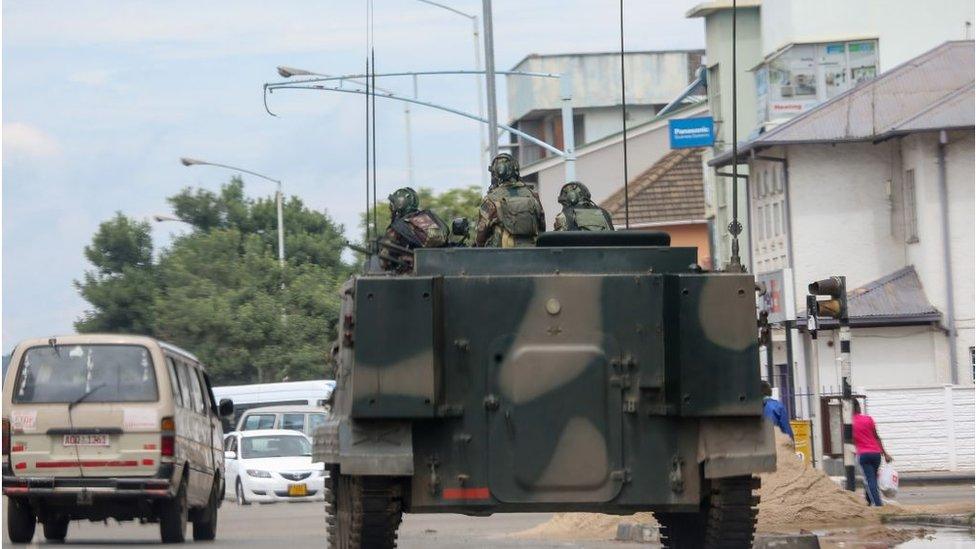
When an army seizes power it can lead to armed patrols and tanks on the streets
People taking part in coups use different tactics to gain control.
They might take over governmental buildings and imprison the people in power.
They might also take control of the state TV and media, in order to get their message out to the country.
What is a military coup?
Often, the people doing this are the armed forces - which is why it is also sometimes known as a military coup.
The army has easy access to weapons, so can more easily threaten force to get what it wants.
In many countries, the army has a lot of power and influence, as a result.
Recent coups in West and Central Africa
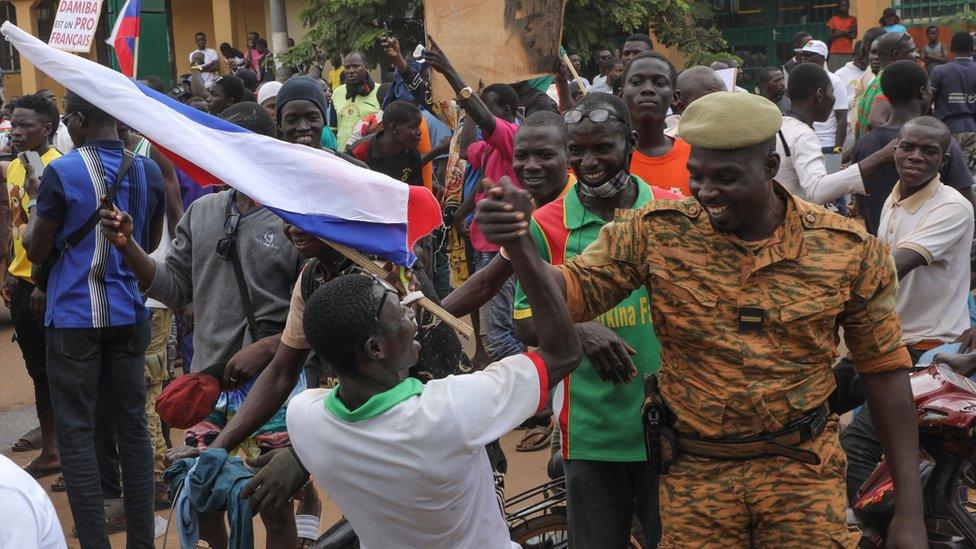
Supporters of the September 2022 army takeover in Burkina Faso celebrate in the capital
There are usually many different reasons for the military to take over in countries.
In Gabon the armed forces that have taken over the country deny their action is coup, but they have closed the borders and cancelled the results of recent elections, in which President Ali Bongo was declared the winner.
Mr Bongo's family has been in power for more than 50 years and opposition groups claimed the election was fraudulent.
Elsewhere, in July 2023, members of thepresidential guard in Niger, West Africa, detained former-President Bazoum saying they were seizing power to end the "deteriorating security situation and bad governance".
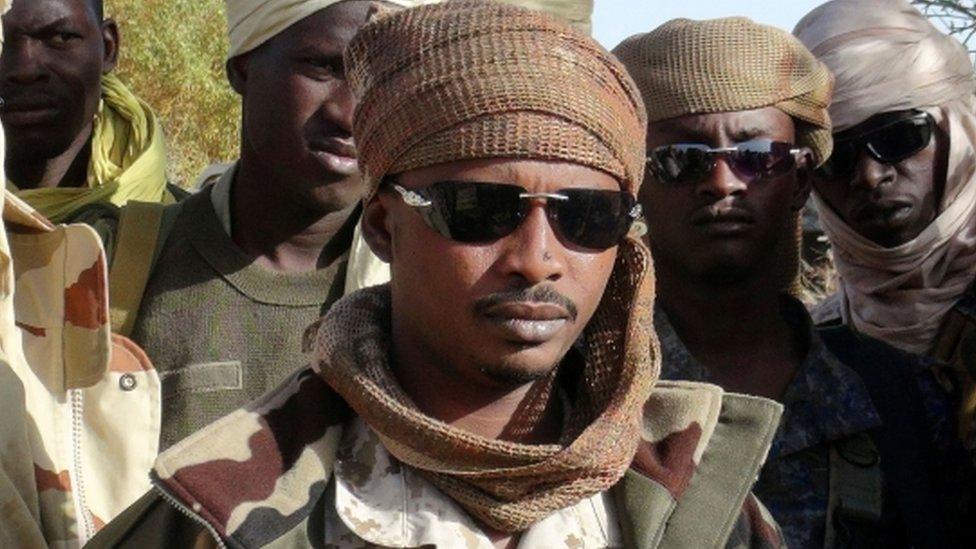
Mahamat Idriss Déby Itno succeeded his father as Chadian leader in April 2021
Also in West Africa, in January 2022, Burkina Faso's army pushed out then-President Kabore saying he wasn't doing enough to stop terrorism. However, a second coup in September that year put a different armed leader in charge.
In September 2021, in Guinea, West Africa, President Conde was removed from power following riots after he changed the country's rules that were meant to prevent anyone, including him, from serving as president for a third term.
In Central Africa, in April 2021, Chad's army took power after President Déby was killed. Déby's son was appointed as interim president, promising elections.
There was a coup in Mali, West Africa, in August 2020, when a group of colonels removed then-president Keita and replaced him with an interim president. However, the groups fell out, and a second coup took place in May 2021 putting the leader of the first coup in charge.
In case you thought coups only happened in Africa, there have been plenty of coups around the world too.
There was a coup in Myanmar in Southeast Asia in 2021, and in Thailand, also in Southeast Asia there was a coup in 2014 - and it has been through 12 coups in recent history. In Chile, in South America, there was a coup in 1973 that famously removed President Salvador Allende replacing him with General Augusto Pinochet who ruled for 17 years.
Are coups a good idea?
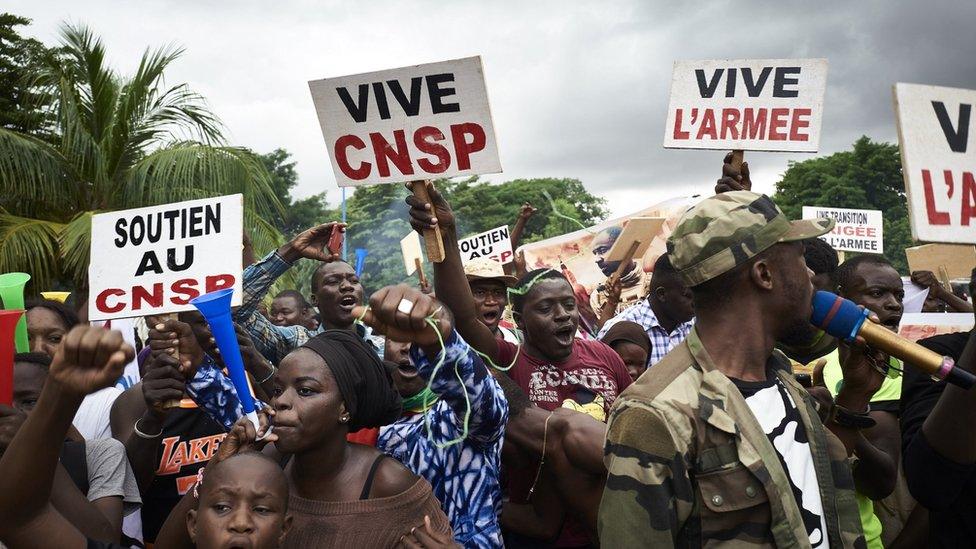
Supporters of the army takeover in Mali went out on to the streets to celebrate
Coups usually happen when an unpopular government has been in power - so there is often a lot of support for the coup among the people living there.
However, coups do not always lead to positive change and instead can bring instability to a country.
This is because people start to lose respect for the idea of government and authority, because the power has so quickly been transferred from one group to another.
Coups are also undemocratic. In democracies, people are given the chance to vote for who should be in power, but during a coup, one group takes power by force - even if they say they are only doing it for a short time.
How do I pronounce coup?
This is an easy one to get wrong. Coup is a French word so drop the "p" and say "coo" as in cuckoo.
